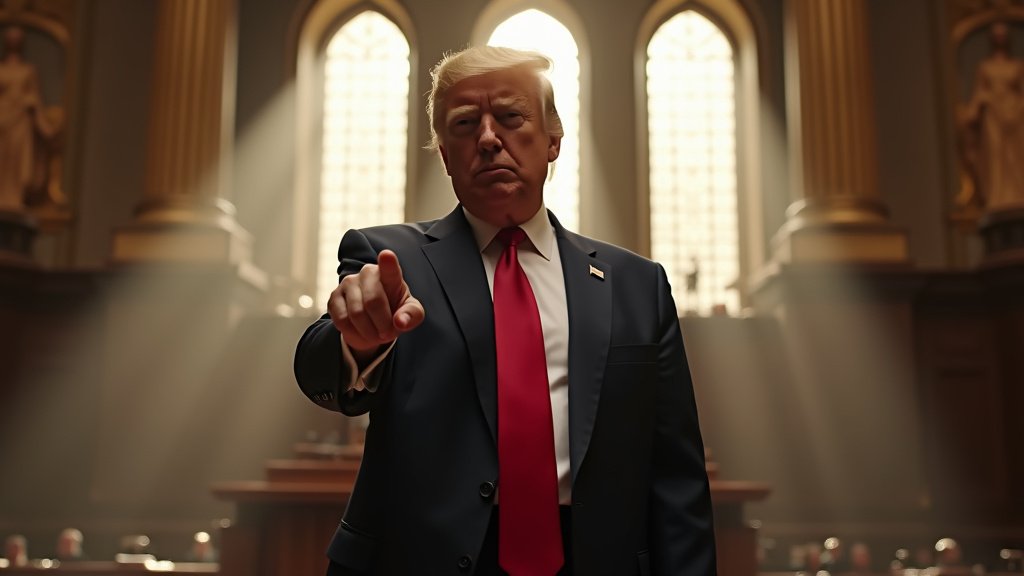Washington D.C. – President Donald Trump has indicated he does not intend to extend the current 90-day pause on tariffs for most nations beyond its scheduled expiration on July 9. The looming deadline marks the conclusion of a negotiation period set by the administration, signaling a potential return to, or escalation of, trade penalties against various countries.
Speaking on Fox News Channel’s “Sunday Morning Futures” in an interview taped Friday and broadcast Sunday, President Trump made clear his administration’s stance. He stated unequivocally that the pause would not be prolonged past the July 9 date.
U.S. Trade Policy Shift
This decision means that unless new trade agreements are successfully negotiated and finalized with the United States before July 9, trade penalties will be imposed. The administration plans to officially notify affected nations of this impending shift in policy.
President Trump noted that letters outlining the specific new tariff requirements and associated trade conditions would be dispatched “pretty soon” ahead of the deadline. He suggested that the application of tariffs would not be uniform, but would instead take into account how each country treats the United States in trade matters.
“It depends on how they treat us,” President Trump told Fox News, indicating that some countries might face a “high number” in terms of tariff rates or scope, depending on their trade relationship and practices with the U.S.
The July 9 Deadline
The original 90-day pause was implemented to provide a window for negotiations aimed at resolving trade disputes and establishing new, potentially more favorable, terms for the United States. The July 9 deadline represents the culmination of this specific negotiation window.
Administration officials had previously suggested that progress during the 90-day period would be crucial in determining whether the pause could be extended. President Trump’s latest remarks suggest that, in his view, sufficient progress has not been made globally to warrant a blanket extension, pushing countries towards the stark choice between reaching a deal quickly or facing new tariffs.
Commentary on Iran and Nuclear Program
During the same wide-ranging interview, President Trump also addressed other significant foreign policy matters.
He reiterated a prior assertion regarding Iran’s nuclear capabilities and facilities, claiming that recent U.S. strikes had “totally OBLITERATED” them. This strong claim contrasts with assessments from some experts and reports.
President Trump also directly addressed and dismissed reports suggesting his administration had been discussing a potential $30 billion aid package for Iran’s civilian nuclear program. He denied that such discussions were taking place.
Focus on Specific Trade Partners
Beyond the general tariff policy, the President also singled out specific trade relationships, highlighting persistent grievances.
He commented on trade with Japan, characterizing their auto trade practices as “unfair.” President Trump suggested that Japan should significantly increase its purchases of U.S. goods, specifically mentioning oil and other products, as a way to address the perceived imbalance.
This commentary underscores the administration’s transactional approach to trade, often linking market access in the U.S. to demands for increased purchases of American exports by trading partners.
Looking Ahead
President Trump’s declaration sets a firm deadline for numerous countries to conclude trade negotiations with the United States or prepare for the imposition of new tariffs. The July 9 date now becomes a critical point on the international trade calendar, potentially triggering a new wave of trade disputes and economic uncertainty unless swift diplomatic and commercial breakthroughs occur. The President’s remarks signal a continued aggressive stance on trade as a central pillar of his foreign and economic policy agenda.











